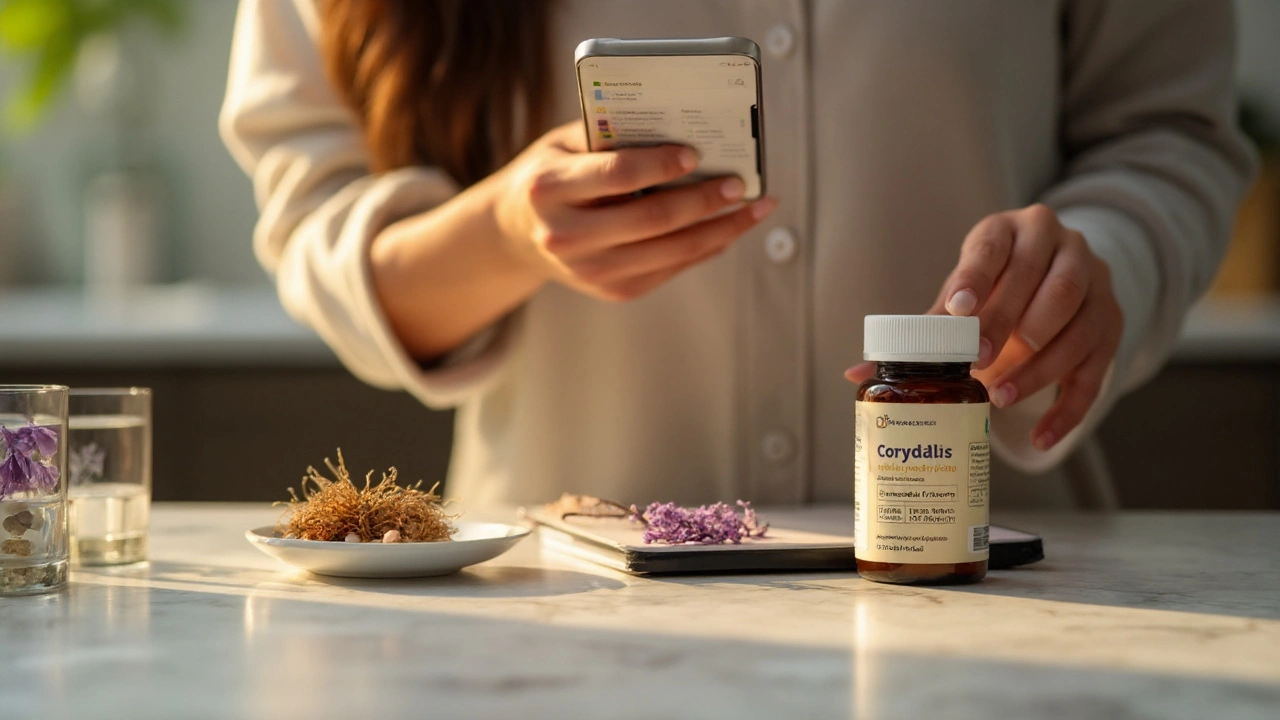
Corydalis Benefits, Uses, Dosage, and Safety (2025 Guide)
Curious about Corydalis? Get a clear, evidence-based guide to benefits, safe dosage, side effects, and how to pick a quality supplement-updated for 2025.
If you’ve heard about corydalis as a plant that eases pain, you’re not alone. It’s a traditional Chinese herb that’s now sold in capsule or powder form. People use it to calm nerves, reduce aches, and improve sleep without reaching for a prescription drug. The main active ingredient, tetrahydropalmatine (THP), works on the brain’s dopamine pathways, which can make you feel less tense and more relaxed.
What makes corydalis attractive is its reputation for being gentle yet effective. Unlike strong opioids, it doesn’t knock you out, and you usually don’t need a doctor’s script. That said, it’s still a potent herb, so knowing the right amount and possible interactions matters.
Most users report three core benefits: reduced muscle or joint pain, lowered anxiety, and easier falling asleep. The THP in corydalis binds to dopamine receptors, which can blunt pain signals and calm the nervous system. In small studies, participants saw a noticeable drop in chronic back pain after a few weeks of daily use. For anxiety, the herb seems to moderate the stress response, helping people feel steadier during busy days.
Sleep benefits appear to be a side effect of the calming action rather than a direct sedative effect. If you’re restless at night, a low dose of corydalis taken an hour before bed can help you drift off without feeling groggy in the morning.
Most manufacturers recommend 200‑400 mg of standardized extract per day, split into two doses. Start at the low end for a week, see how you feel, then bump up if needed. Taking more than 600 mg can increase the risk of dizziness or mild nausea, so it’s best to stay within the suggested range.
Because corydalis affects dopamine, avoid it if you’re on medications that also influence dopamine levels, such as antipsychotics or certain Parkinson’s drugs. Alcohol, sedatives, and other central nervous system depressants can amplify the sleepy feeling, so keep those combos to a minimum.
Pregnant or breastfeeding people should skip corydalis until more safety data are available. Kids aren’t recommended either. If you have liver or kidney issues, check with a healthcare professional before starting.
When you shop for corydalis, look for products that list the exact THP concentration and have third‑party testing. Transparent labeling shows the plant part used (usually the root) and the extraction method. Cheap, untested powders may contain fillers or lower potency, which can give inconsistent results.
In short, corydalis can be a handy addition to a natural wellness toolbox. It offers pain relief, anxiety reduction, and better sleep without the crash of stronger drugs—provided you respect the dosage and check for interactions. Start low, watch how your body reacts, and pick a reputable brand for the best experience.

Curious about Corydalis? Get a clear, evidence-based guide to benefits, safe dosage, side effects, and how to pick a quality supplement-updated for 2025.